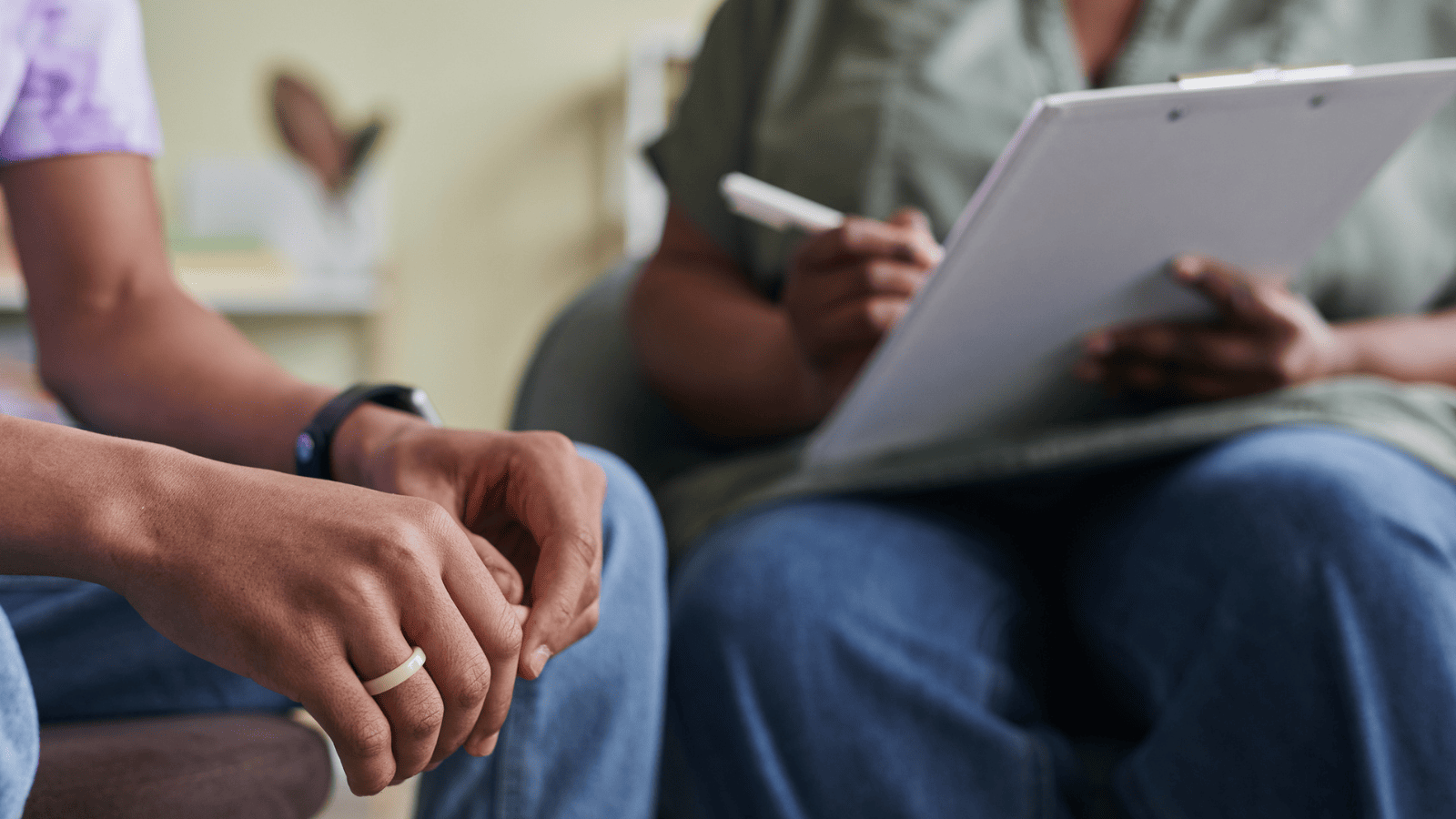Gambling harms: support for early screening professionals
Topics

With new guidelines encouraging more healthcare professionals to ask about gambling, we are shining a spotlight on our Gambling Awareness and Prevention (GAP) Programme – and explaining the benefits of trained professionals taking on early screening roles.
Healthcare professionals will be expected to ask people about their gambling, according to new recommendations. This change is part of new draft guidance by NICE (the National Institute for Health and Care Excellence), which already advises asking such questions about the use of drugs, smoking, and alcohol. But why is this so important?
The relationship between gambling and mental health is complicated, with the harms involved often going hand in hand. NICE has identified that when people face mental health challenges, they may be more vulnerable to gambling harms. At the same time, gambling harms can worsen many mental health concerns, including depression or anxiety. Through asking about gambling harms, healthcare professionals can better understand the issues people are facing, and signpost to specialist support.
Yet it is not only healthcare professionals who are well situated for early screening, signposting, and support. Gambling harms can also intersect with a variety of issues other than mental health. These include financial harms and debt, relationship or community concerns, housing and homelessness, or crime.
As such, it is important that professionals in these sectors are also equipped to recognise when harm is taking place and support people facing gambling harms.
Spotting the signs of gambling harm
According to new figures, gambling harms affect as many as 1.3 million people in the UK, but can be difficult to spot, with gambling often referred to as the ‘hidden addiction’. Stigma often prevents people from talking about the harms they face, or from finding support networks.
As such, awareness of gambling harms is vital. Aware professionals are better situated to have open conversations about gambling-related concerns, to be approached in confidence, and sensitively deal with key issues.
It is also important for many professionals to be able to recognise the signs that someone may be dealing with issues around gambling. Through being able to spot gambling harms where they are present, professionals can help prevent or mitigate them, such as through signposting to support tools such as our National Gambling Helpline.
Gambling Awareness and Prevention – support for professionals
Our Gambling Awareness and Prevention (GAP) Programme is in partnership with Breakeven, Aquarius, and NECA. Together, we are dedicated to reducing gambling harms by supporting diverse professionals, building their confidence to deliver early intervention and prevention in a number of settings.
This includes working with professionals to understand and address the impact of stigma, to recognise and appropriately respond to signs of gambling-related harms, and to empower them with the confidence to talk about gambling. It also reinforces smooth referral pathways, and ensures the route from screening to accessing support is clear and straightforward.
The GAP Programme delivers free 2-hour training sessions, delivered to professionals face to face or online, to raise awareness about the impact of gambling-related harms on all affected individuals. This training is evidence-based and available to professionals across England, Scotland, and Wales.
Training will be available for:
- Debt Advice
- Housing and Homelessness
- Faith and Cultural Community Leaders
- Community Pharmacies
- Primary Care (excluding GPs)
- Social Care
- Occupational Health
Visit our GAP webpage for more information or book your training via email: [email protected]
How else can I support against gambling harms?
Are you affected by gambling or someone else’s gambling? Free, confidential information, advice and support is available 24/7 through our National Gambling Helpline. Advisers are available 24 hours a day on Freephone 0808 8020 133, via WhatsApp on 020 3031 8881, or via live chat.
We also have advice for spotting the signs of gambling harm, and offer free informational and signposting leaflets, ready for use in the workplace or in support services.
Looking to better understand your relationship with gambling? Use our self-assessment tool for instant results.
Interested in our Gambling and Prevention training for professionals? Visit our GAP webpage for more information or book your training via email: [email protected]
Topics




